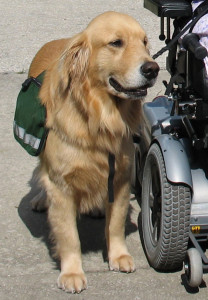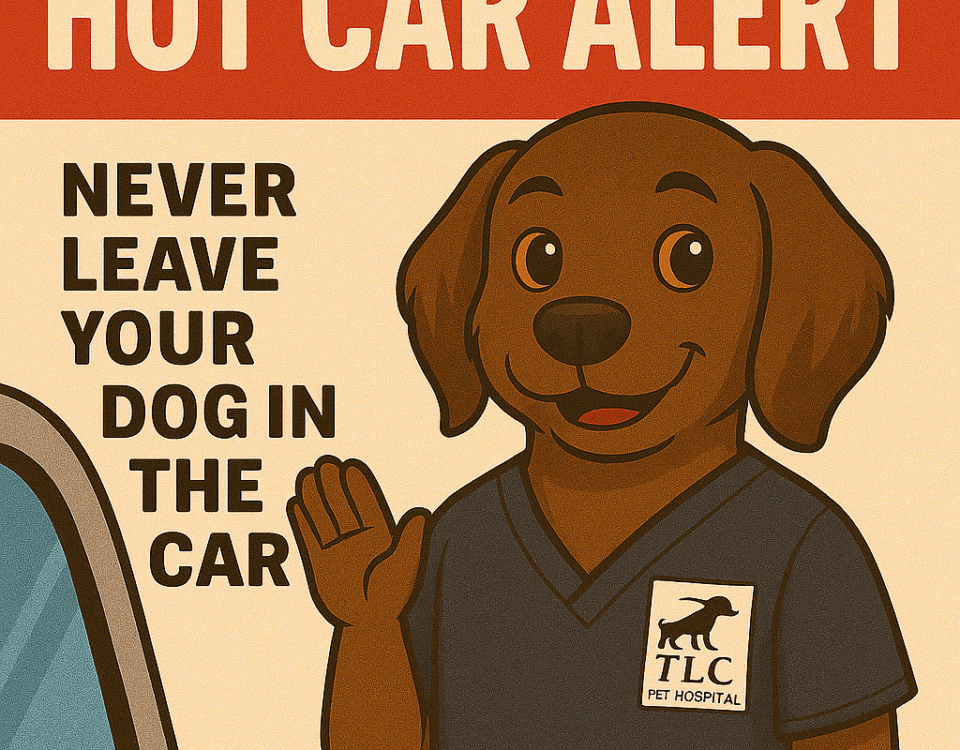Water Safety
August 4, 2015SAVE THE DATE – OPEN HOUSE!
August 4, 2015It’s no secret that dogs are known as “man’s best friend”. On a daily basis our dogs (cats and other furry & feathered friends, too!) provide us with unconditional love and loyalty thus making a positive impact on our lives. The therapeutic and healing benefits of a canine’s companionship are next to none, simply petting a dog can reduce stress, anxiety and depression. This trait, along with their amazing trainability is what makes them so successful at being assistance dogs and aiding those with disabilities. With the help of hardworking and devoted assistance dogs, individuals with physical, emotional and mental disabilities are able to experience an enhanced quality of life.
3 Types of Assistance Dogs
While formal training standards for guide dogs have been established for over 70 years, the use of assistance dogs alongside individuals with physical and mental disabilities is a more modern concept. Nevertheless, hardworking assistance dogs of all types significantly impact their partners’ lives in many ways every single day.

Guide Dogs: For individuals who are blind or visually impaired. In public, a guide dog can be identified by a harness and U-shaped handle which promotes communication between the assistance dog and their partner. In this team, the human’s role is to provide verbal commands, while the dog ensures their partner’s safety by avoiding obstacles, signaling changes in elevation, locating objects, negotiating traffic and so on.
Hearing Dogs: For individuals who are deaf and hard of hearing. Hearing dogs assist by alerting their partners to household sounds, such as doorbells, alarm clocks, smoke alarms, a crying baby and more. They are trained specifically to make physical contact and lead deaf partners to the source of sounds.
Service Dogs: Service Dog is a broad term for canines who support partners with disabilities other than those related to vision or hearing. These dogs can be specially trained to handle a multitude of situations related to improving their partner’s well-being. Service dogs can work with wheelchair bound individuals, those with autism and also those with other medical concerns to perform potential lifesaving duties. Service dogs can also aid those seeking emotional support. A veteran may find that an assistance dog has a huge, positive impact on their quality of life by providing them with stability & comfort after returning from overseas.
Among many others, here are a few tasks specially trained service dogs can help with:
- Retrieving out-of-reach items
- Pulling wheelchairs
- Opening & closing doors
- Turning light switches on & off
- Barking to indicate assistance is needed
- Providing balance & counterbalance
- Seizure alert & response- Dogs trained to operate push button device to call 911, etc.
- Alerting to other medical issues, such as low blood sugar- Dogs trained to fetch insulin kit or respiratory assist device if necessary.
Assistance Dog Standards
 Assistance dogs, their trainers, partners and associated programs are held to a high level of standards that are crucial for defining what an assistance dog is. After completing screenings for emotional soundness, physical health and working ability, the dogs must complete labor-intensive training plans which include obedience and task work, such as retrieving, carrying, nose nudge and harness based tasks among many others. Once training is complete, assistance dogs are matched to best suit the needs of their partner and must show they are capable of performing the tasks deemed necessary to alleviate their partner’s disabilities. In turn, assistance dog partners must be able to provide their assistance dog with a secure living environment as well as take responsibility for the dog’s emotional, physical and financial needs.
Assistance dogs, their trainers, partners and associated programs are held to a high level of standards that are crucial for defining what an assistance dog is. After completing screenings for emotional soundness, physical health and working ability, the dogs must complete labor-intensive training plans which include obedience and task work, such as retrieving, carrying, nose nudge and harness based tasks among many others. Once training is complete, assistance dogs are matched to best suit the needs of their partner and must show they are capable of performing the tasks deemed necessary to alleviate their partner’s disabilities. In turn, assistance dog partners must be able to provide their assistance dog with a secure living environment as well as take responsibility for the dog’s emotional, physical and financial needs.
While many service dog programs use Golden retrievers and Labradors, there are many other examples of breeds that have been successfully trained in aiding individuals with disabilities. The partner and their type of disabilities is a large deciding factor in what type of dog they will be matched with. Breed, size, shape and color aside, a good service dog is very people oriented, not protective or overly active and is confident, but not dominant or submissive.
Want to Learn More?
If you are interested in applying for an assistance dog, training an assistance dog or helping to educate others about these specially trained animals, check out the resources below.
- Assistance Dogs International
ADI is a coalition of not for profit assistance dog organizations. If you are interested in applying for an assistance dog, you can find resources from Assistance Dogs International to locate programs in your local area.
- Celebrate International Assistance Dog Week
This website is a comprehensive resource about International Assistance Dog Week (August 2nd through the 8th). Locate events in your area to help celebrate & raise awareness about assistance dogs.
- Keystone Pet Enhanced Therapy Services
Do you know an organization or individual who could benefit greatly from some therapy dog interaction? KPETS, out of Lancaster, PA, is a network of therapy teams that provide therapeutic and supportive benefits to those with disabilities through human to animal interactions. These services are provided to organizations and/or individuals in need free of charge.
- Phoenix Assistance Dogs of Central PA
Interested in training an assistance dog? Phoenix Assistance Dogs is a community program created to locate and train puppies to help those in need. PAD can also help individuals in finding and training their own assistance dog if they wish.
Sources:
http://www.iaadp.org/tasks.html
http://www.servicedogcentral.org/content/
http://www.assistancedogsinternational.org/
http://www.assistancedogweek.org/
http://www.kpets.org/
Images:
Service Dog © Found Animals Foundation | Flickr
Service Dog with Wheelchair © betta5 | freeimages.com
Guide Dog © Leonardo Tote | freeimages.com



